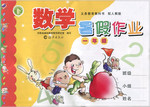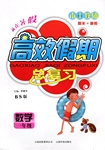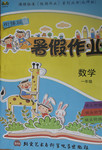题目内容
As we know, most of the material things in our daily life have to be bought with money. But money is not all powerful. Money can't buy many things such as time and true love. There are 24 hours in a day. Sometimes when we are very happy, we wish that the period of happiness would last longer. But no matter what we do, or how much money we are willing to pay, we cannot make a day last longer than 24 hours. On the other hand, when we are unhappy, money cannot make the unhappy time pass away more quickly. True love is another thing which money cannot buy. Suppose we have someone who really loves us very much. Once he dies, he can give us no more love. Can our money raise him from death and make him love us as before? Here we can see very clearly that money cannot buy us love. Money can buy us diamond things, beautiful clothes, but never time and love. So money, after all, is not all powerful.
72. According to the passage, it is quite impossible for you to buy ______.
A. true friendship B. real diamond C. a large house D. an expensive car
73. Which of the sentences expresses the main idea of this passage?
A. Money cannot buy time and love. B. Money is not powerful at all.
C. Money can buy people material things. D. Money doesn't mean everything.
74.Through the passage the writer wants to tell people not to ______.
A. make money B. waste money C. save money D. worship(崇拜) money
75. From the passage we can see that in our life, besides something material, we need something ______.
A. spiritual B. beautiful C. lovely D. useful
72---75 ADDA
解析

 暑假作业海燕出版社系列答案
暑假作业海燕出版社系列答案 本土教辅赢在暑假高效假期总复习云南科技出版社系列答案
本土教辅赢在暑假高效假期总复习云南科技出版社系列答案 暑假作业北京艺术与科学电子出版社系列答案
暑假作业北京艺术与科学电子出版社系列答案Unless we spend money to spot and prevent asteroids now,one might crash into Earth and destroy life as we know it,say some scientists.
Asteroids are bigger versions of the meteoroids(流星)that race across the night sky. Most orbit the sun far from Earth and don't threaten us. But there are also thousands whose orbits put them on a collision course with Earth.
Buy $ 50 million worth of new telescopes right now. Then spend $ 10 million a year for the next 25 years to locate most of the space rocks. By the time we spot a fatal one,the scientists say,we'll have a way  to change its course.
to change its course.
Some scientists favor pushing asteroids off course with nuclear weapo ns. But the cost wouldn't be cheap. I
ns. But the cost wouldn't be cheap. I s it worth it? Two things experts consider when judging any risk are: 1) How likely the event is; and 2) How bad the consequences if the event occurs. Experts think an asteroid big enough to destroy lots of life might strike Earth once every 500,000 years. Sounds pretty rare-but if one did fall,it would be the end of the world. “If we don't take care of these big asteroids,they'll take care of us,” says one scientist. “It's that simple.”
s it worth it? Two things experts consider when judging any risk are: 1) How likely the event is; and 2) How bad the consequences if the event occurs. Experts think an asteroid big enough to destroy lots of life might strike Earth once every 500,000 years. Sounds pretty rare-but if one did fall,it would be the end of the world. “If we don't take care of these big asteroids,they'll take care of us,” says one scientist. “It's that simple.”
The cure,though,might be worse than the disease. Do we really want fleets of nuclear weapons sitting around on Earth? “The world has less to fear from doomsday(毁灭性的) rocks than from a great nuclear fleet set against them,” said a New York Times article.
【小题1】What does the passage say about asteroids and meteoroids?
| A.They are heavenly bodies different in composition. |
| B.They are heavenly bodies similar in nature. |
C.There are more asteroids th an meteoroids. an meteoroids. |
| D.Asteroids are more mysterious than meteoroids. |
| A.It is very unlikely but the danger exists. |
| B.Such a collision might occur once every 25 years. |
| C.Collisions of smaller asteroids with Earth occur more often than expected. |
| D.It's still too early to say whether such a collision might occur. |
| A.It sounds practical but it may not solve the problem. |
| B.It may create more problems than it might solve. |
| C.It is a waste of money because a collision of asteroids with Earth is very unlikely. |
| D.Further research should be done before it is proved applicable. |
| A.while pushing asteroids off course nuclear weapons would destroy the world |
| B.asteroids racing across the night sky are likely to hit Earth in the near future |
| C.the worry about asteroids can be left to future generations since it is unlikely to happen in our lifetime |
| D.workable solutions still have to be found to prevent a collision of asteroids with Earth. |
| A.Optimistic. | B.Critical. | C.Objective. | D.Subjective. |